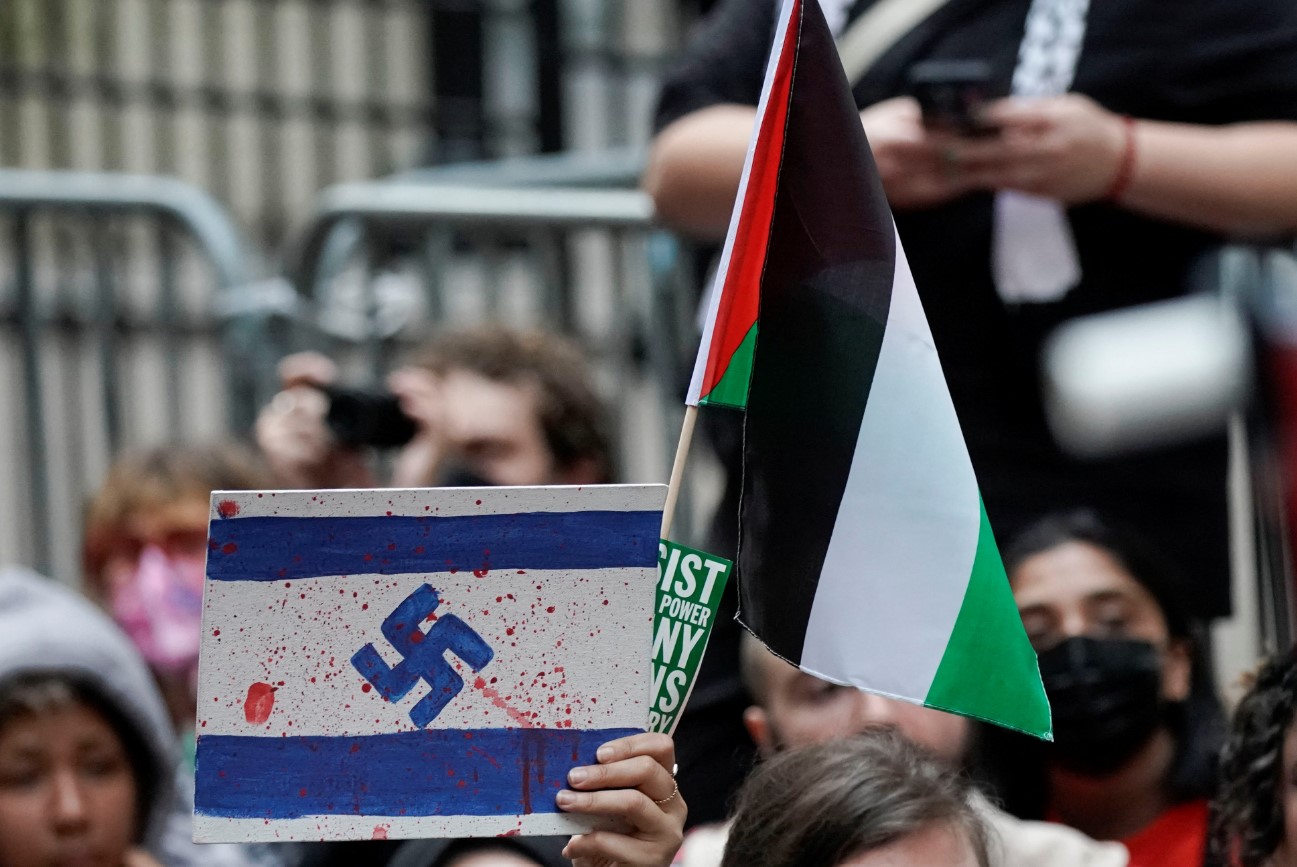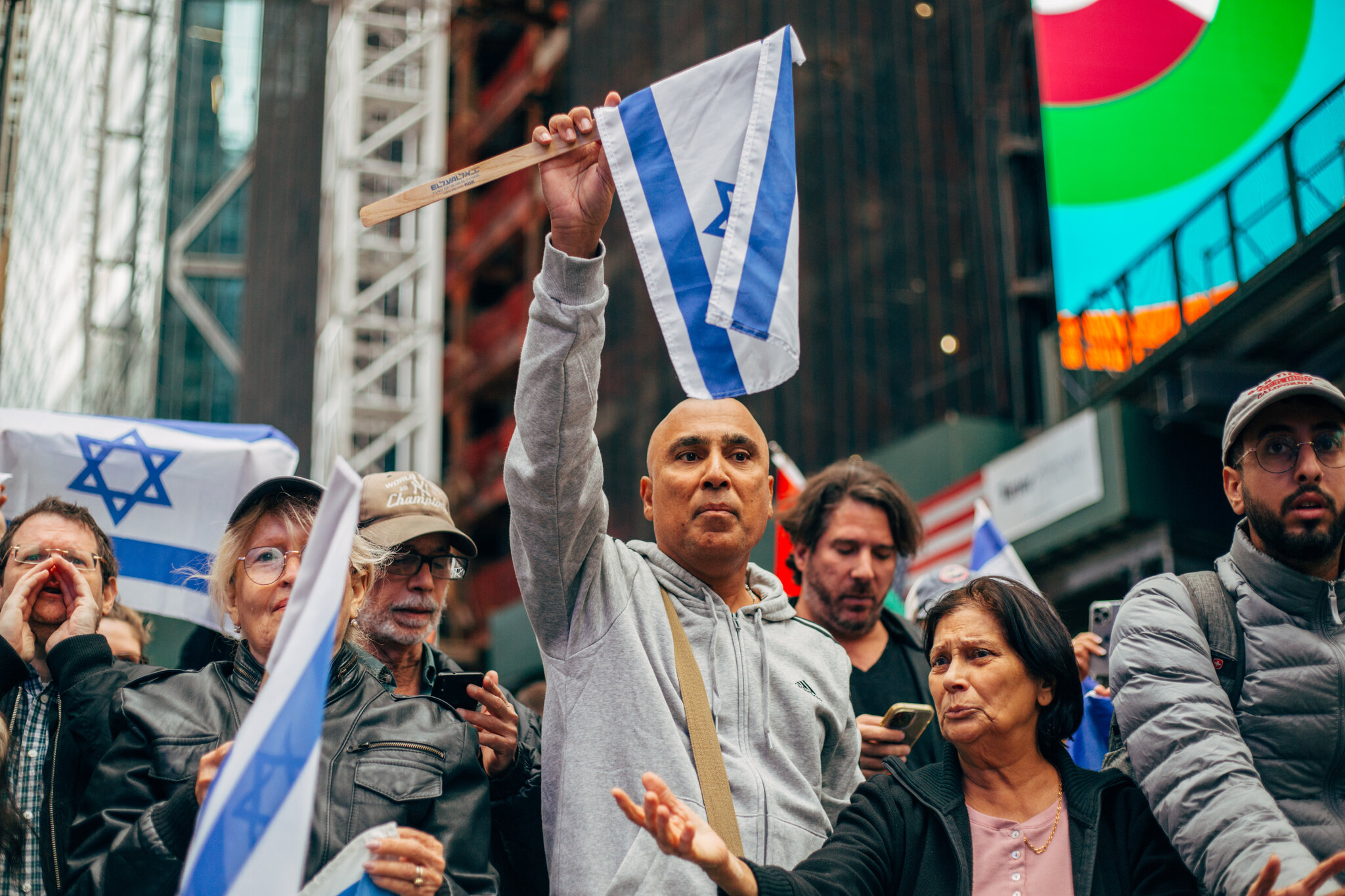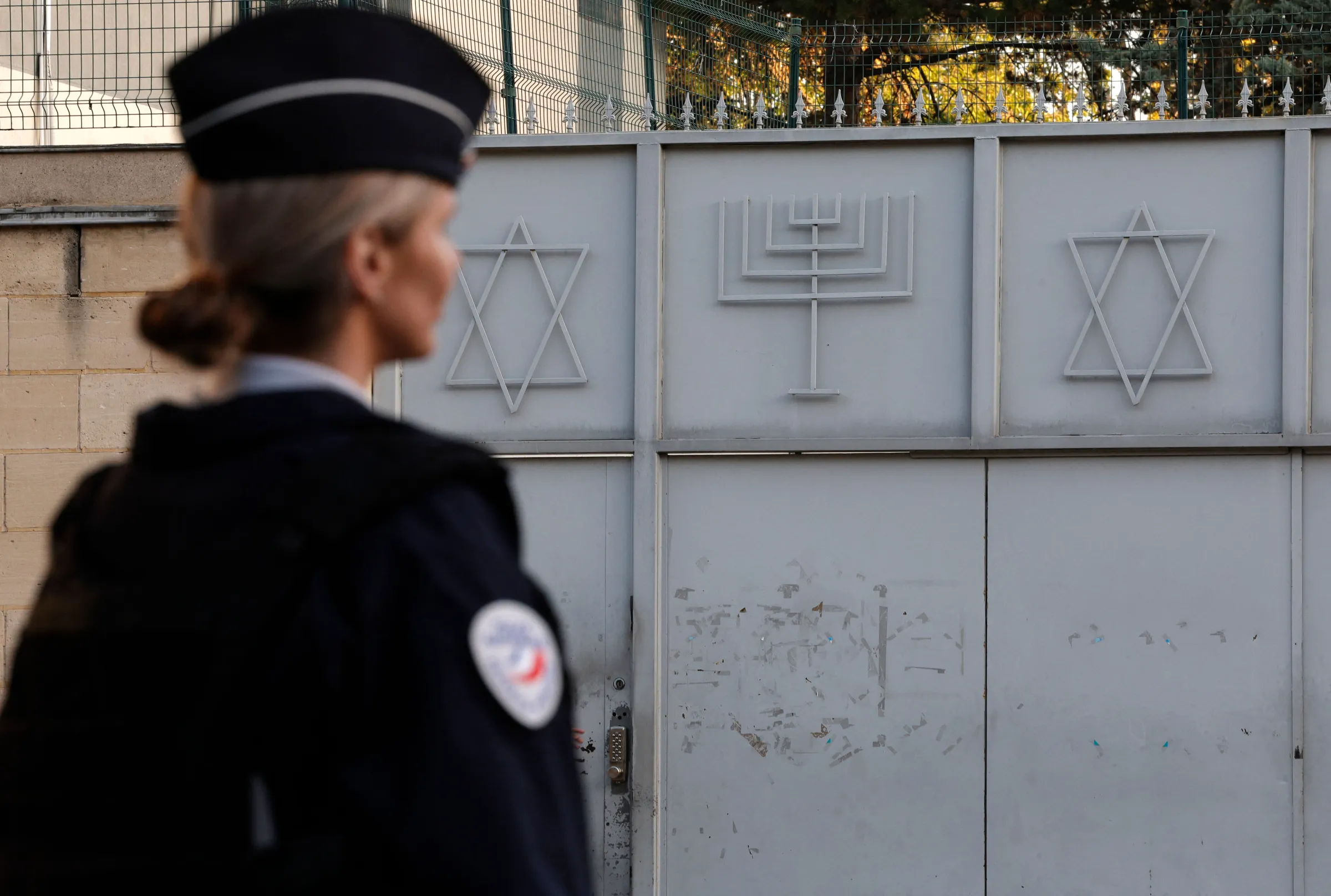
The rise of anti-Semitism in Europe, fueled by the escalating conflict between Israel and Hamas, is becoming a source of serious concern among Jewish communities. Heightened tensions in the Middle East have affected the socio-political atmosphere in European countries, with an increase in hate speech and attacks against Jews. Jewish leaders are expressing alarm over the trend, which threatens the safety and well-being of Jews on the continent, raising questions about the need for stronger measures by authorities.
Echoes of Middle East conflict in Europe: Jews face new threats amid surge in anti-Semitism
From Geneva, Michel Dreyfus does not feel removed from the events of October 7, when Hamas attacked Israel, followed by Israeli bombing of Gaza. The impact of these events is spreading across Europe, shattering both global and personal notions – including his own safety as a Jew. “Yesterday I bought a can of pepper spray at a military supply store,” the 64-year-old retired tech worker told a rally to commemorate the events of the past month. The purchase, he said, was a “precautionary measure” in the wake of rising anti-Semitism in Europe.
The killing of nearly 1,200 people in Israel by armed Palestinian militants last month was the worst massacre of Jews since the Holocaust. The event, along with Israel’s massive military response, which Palestinian authorities say killed at least 13,300 Palestinians in the Gaza Strip, has had far-reaching consequences for Europe. The wave of violence and hatred has engulfed a continent that has seen tragic manifestations of anti-Semitism for centuries.

Certainly, the last century requires special attention. The concern about the rise of anti-Semitism in Europe is partly due to what Jews experienced before and during World War II, which makes the current situation particularly acute. For those whose families are only a generation or two removed from the victims of Jewish pogroms and Nazi atrocities, this new wave of hatred is especially frightening.
An act of anti-Semitism: how to recognize and understand its manifestations
Anti-Semitism is broadly defined as hatred of Jews, but there has been debate for years about what actions and statements are considered anti-Semitic. Criticism of Israeli policies is often lumped together with anti-Semitism, particularly among Israeli leaders such as Prime Minister Benjamin Netanyahu and some human rights groups. Critics say this conflation makes it difficult to constructively criticize Israeli policies and creates the impression that any disagreement with the state is automatically considered anti-Semitic.
Some statements – both for and against Israel or the Palestinians – “sound like they are part of a sporting event,” says Susan Neumann of the Einstein Forum in Potsdam, Germany. “We continue to promote the idea that you have to pick a side, rather than stand up for human rights and justice,” she says. At the same time, many argue that anti-Semites often use criticism of Israel as a cover for their views. Since the October 7 attacks, there have been numerous examples of anti-Jewish sentiment across Europe, which have been well-documented by governments and watchdogs.
— Just over a month after the attack on Israel, France’s Interior Ministry reported 1,247 registered anti-Semitic incidents since October 7, nearly triple the total for the whole of 2022.— In Denmark, the main Jewish association noted a 24-fold increase in anti-Semitic incidents compared with the average for the past nine months.— The Community Security Trust, a UK organization that monitors anti-Semitic incidents, recorded more than 1,000 cases in 28 days, a record number for that period.

Despite widespread condemnation of anti-Semitism and support for Israel from European leaders in the wake of the attacks, the situation continues to deteriorate. Many Jews in Europe have seen this in their daily lives and in the news. According to the UK-based Community Security Trust, Jewish children are being bullied on their way to school and in some cases even asked to explain Israel’s actions. Conversations about the need to better integrate into society have become more frequent, with people hiding their yarmulkes in the street and hiding mezuzahs, traditional Jewish symbols, on their door frames.
In Russia, a crowd of men rioted at an airport, shouting anti-Semitic slogans and searching for passengers arriving from Israel. In Berlin, a synagogue was set on fire, and in Lyon, France, a man stabbed a Jewish woman twice in her own home.
A month ago, in Prague’s Mala Strana district, staff at the popular Hippopotamus bar refused to serve a group of Israeli tourists and their Czech guides, while other patrons shouted insults, prompting police intervention. In Berlin, the Jewish community continues to grapple with the aftermath of a synagogue arson attack.
“Some of us are panicking,” said Anna Segal, 37, manager of Berlin’s 450-member Jewish community Kahal Adass Jisroel.
